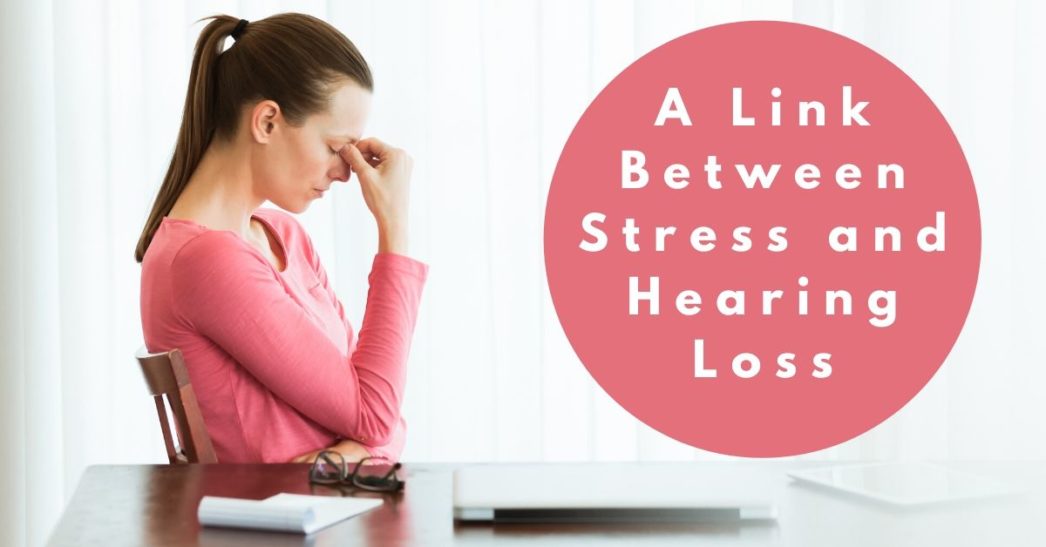Modern society is full of stressors, including career stress, parenting stress, and financial stress. All these stressors are closely linked to health problems, and can make it increasingly difficult to live a long and happy life. High levels of stress have even been linked to hearing loss.
The Biological Basis of Stress
Millions of Americans struggle with stress, and high levels of stress can lead to physical and mental health concerns. Despite our negative view of modern stress, it was once vital to our survival. When you encounter an environmental stressor, like a bear in the middle of the path, your body switches into stress mode. This is called the fight or flight response, and it floods the body with cortisol, a hormone that directs extra energy to the muscles to get ready for action, speeds up heart rate, and directs less energy to the prefrontal cortex. This means you’ll be ready to fight or to run, but you won’t be prepared to carefully think through a situation.
This kind of stress can save your life when you’re faced with an environmental stressor, but when the stressor is related to your job or your home life, the stress can have a very negative effect.
The Downside of Stress
When you live in a constant state of stress, and spend many hours a day worrying about your job, your family, or your health, this chronic stress will take a toll on your body. Chronic stress will weaken your immune system, affect your sleep, and even impact your digestive system. Heart disease, diabetes, and high blood pressure are all worsened by stress. Long-term stress can also lead to hearing loss.
The Link Between Stress and Hearing Loss
When a short-term stressor passes, your brain will signal to your body that the danger is over, and all systems return to normal. However, when faced with chronic stress, the body never relaxes, and many systems become compromised.
Stress directs oxygen-rich blood to the muscles to prepare for fight or flight, and other parts of the body receive less blood flow. The ears are one of the areas that aren’t important to immediate survival, and won’t receive as much blood during stress. Prolonged oxygen deprivation of the cells in the ear will lead to cell damage or even death. Once these cells die, there’s no way for them to regrow, and you’ll experience permanent hearing loss.
Reducing Stress and Improving Hearing
Hearing loss can’t be reversed, but reducing stress will protect the hearing you have, and will help you manage tinnitus. Reducing stress and finding ways to calm your body’s fight or flight response will help you relax, breathe deeply, and keep oxygen flowing to your brain and your ears. You can reduce stress by:
- Taking breaks: If you’re feeling very stressed by a task, take a break. Walk away for a few minutes, and clear your head. When you come back to the task, you’ll feel calmer and be able to think through the task more easily.
- Prioritize exercise: When you’re feeling stressed, a lot of energy is sent to your muscles. Put that energy to good use by exercising, and releasing the stress from your body. Even a 15-minute exercise routine can relieve stress.
- Talk to a friend: Another good way to reduce stress is by seeking social support. Talking to a friend about your stress will help you realize you’re not alone, and many people feel the same stress that you do.
- Try meditating: Meditation and breathing exercises can bring you a sense of calm and stillness. Taking some deep breaths will signal to your body that the danger has passed, and will reduce stress.
Treating Hearing Loss
As you learn to manage your stress, schedule an appointment with your hearing health specialist and get your hearing tested. Reducing stress will improve your hearing, and treating hearing loss can reduce your stress! With hearing aids you’ll be able to hear clearly, and won’t have to worry about mishearing what’s been said, or stress about enjoying dinner if you can’t follow what’s been said. Treating your hearing loss will help you hear, even in noisy environments, and you can enjoy life without stressing about your hearing.


